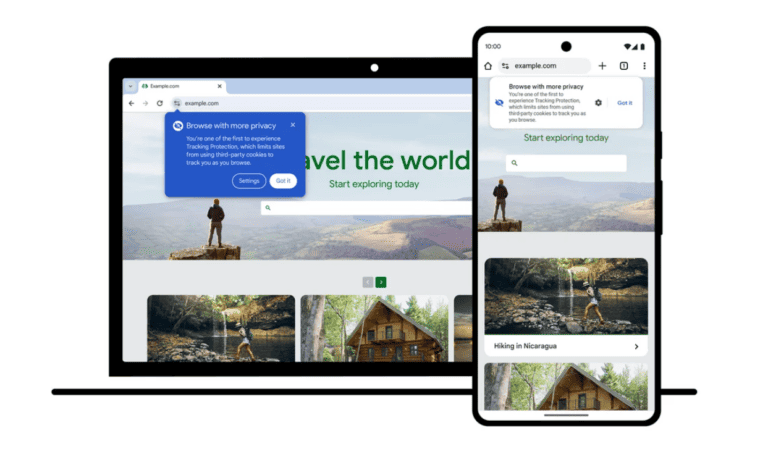Google will start its plan to phase out third-party cookies in 2024. In its place will be a new revenue model to sell Chrome users’ data to advertisers. In January, the Tracking Protection feature will launch for this purpose.
The rollout of the Tracking Protection feature will begin on Jan. 4. Initially, only one percent of users will have access. These Chrome users will be randomly selected and notified via a notification when opening the Chrome web browser. That could be on the desktop or an Android phone.
Blocking third-party cookies
The feature causes third-party cookies to be blocked by default. Google knows the feature is not yet completely problem-free. The Chrome builder anticipates this by tracking problems while a user tries to load websites. Once a problem occurs, users get the choice to temporarily re-enable third-party cookies for the website they want to visit.
Privacy Sandbox
Later in the year 2024, third-party cookies should become something of the past for good. Developers can anticipate that idea by already getting started with the alternative, the Privacy Sandbox. That idea has already received a lot of criticism because it still does not protect users’ privacy as well as possible. Moreover, for measuring ad reach, developers are locked into the ecosystem Google developed.
Also read: What is the Google Chrome Privacy Sandbox?
The Tracking Protection feature helps launch the Privacy Sandbox. It is not the alternative but a necessary feature to phase out the current default of third-party cookies. By the way, antitrust regulators are also looking closely at Google’s new advertising system. The British authority CMA, for example, will watch everything closely to ensure that the tech giant does not give itself an unfair advantage in selling ads.
